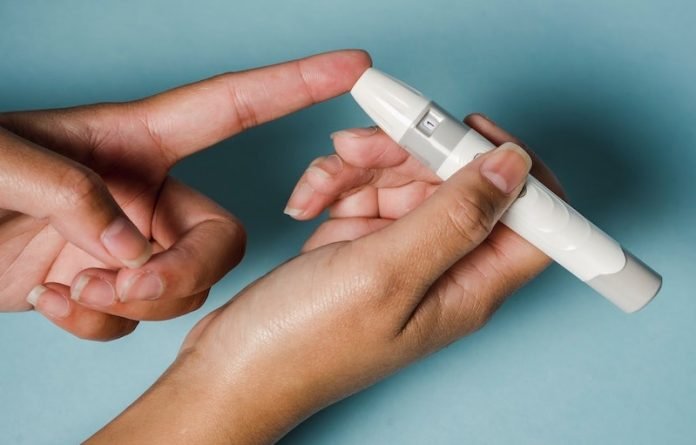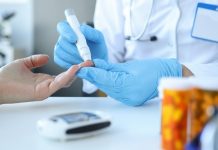
A new study has suggested that people who get infected with the coronavirus may be at an increased risk of developing diabetes.
The study was published online on April 18, 2023, in JAMA Network Open.
The research was conducted by scientists at the British Columbia Centre for Disease Control in Vancouver, Canada.
They studied a population-based cohort and examined the link between COVID-19 infection and diabetes risk.
The study found that people who tested positive for SARS-CoV-2, the virus that causes COVID-19, were 17% more likely to develop diabetes than those who tested negative.
The exposed group also had a higher incidence of diabetes per 100,000 person-years compared to the non-exposed group.
Furthermore, people with severe diseases, including those who were admitted to the intensive care unit or hospital, were at an even higher risk of developing diabetes.
The researchers found that the fraction of diabetes cases attributable to SARS-CoV-2 infection was approximately 3-5%.
The study highlights the importance of health agencies and clinicians being aware of the potential long-term consequences of COVID-19.
The authors suggest that people who have been infected with the virus should be monitored for new-onset diabetes for timely diagnosis and treatment.
It’s important to note that this study is preliminary, and more research is needed to confirm the findings. However, it does suggest that the impact of COVID-19 on health may extend beyond the initial illness.
How to prevent diabetes after COVID-19
Studies have shown that there is a significant association between COVID-19 and the risk of developing diabetes.
The virus may cause inflammation in the pancreas, which is responsible for producing insulin, the hormone that regulates blood sugar levels.
This inflammation can lead to damage to the pancreas and a decrease in insulin production, which can lead to diabetes.
Furthermore, COVID-19 has been shown to cause a hyperinflammatory response in the body, which can lead to insulin resistance and further increase the risk of developing diabetes.
Additionally, the stress caused by the virus and the use of certain medications in treating COVID-19 may also contribute to the development of diabetes.
It’s important to note that not everyone who contracts COVID-19 will develop diabetes, and more research is needed to fully understand the link between the two conditions.
However, healthcare professionals and researchers are monitoring this potential association and urging individuals who have had COVID-19 to be aware of their risk for developing diabetes and to seek timely medical attention if necessary.
Currently, there is no surefire way to prevent diabetes after COVID-19 infection.
However, there are some steps that individuals can take to reduce their risk of developing diabetes or to manage their diabetes better. These steps include:
Maintaining a healthy diet: Eating a balanced diet that is rich in fruits, vegetables, whole grains, lean proteins, and healthy fats can help regulate blood sugar levels and reduce the risk of developing diabetes.
Regular exercise: Engaging in regular physical activity such as walking, cycling, or swimming can help regulate blood sugar levels and improve overall health.
Monitoring blood sugar levels: Individuals who have been infected with COVID-19 should monitor their blood sugar levels regularly, especially if they have a history of diabetes or prediabetes.
Managing stress: High levels of stress can increase blood sugar levels, so it’s important to manage stress through activities like meditation, deep breathing, or yoga.
Getting adequate sleep: Lack of sleep can also increase blood sugar levels, so getting enough sleep is essential for regulating blood sugar levels.
Following medical advice: Individuals who have been infected with COVID-19 should follow their healthcare provider’s advice regarding monitoring and managing their blood sugar levels.
It’s important to note that individuals who have been infected with COVID-19 should not avoid seeking medical attention for symptoms of diabetes or other health conditions.
Early detection and treatment can help prevent complications and improve overall health outcomes.
If you care about COVID, please read studies that vaccines may increase heart disease risk, and scientists find very strong brain abnormalities post-COVID.
For more information about diabetes, please see recent studies about new therapy to slow kidney damage from diabetes, and results showing cruciferous vegetables may reverse kidney damage in people with diabetes.
The study was conducted by Zaeema Naveed et al and published in JAMA Network Open.
Copyright © 2023 Knowridge Science Report. All rights reserved.



